Old is not always gold.
When it comes to leading the most powerful nation in the world, news reports depict an America that seems to prefer the youngest presidents of the US, instead of current president Joe Biden, aged 80 years old.
Biden is America’s oldest president — a title he plans to hold for another six years by seeking reelection.
Not everyone thinks this is the best idea. Insiders speak of “two Joe Bidens” — one who is sharp during crises in the dead of the night, another who can’t remember the names and ages of his grandchildren.
Then there are the mishaps of other 80-something and 90-something presidents.
- Paul Biya, 90-year-old president of Cameroon, whose 40-year tenure has been plagued with accusations of many human rights abuses
- Joaquín Balaguer was 89 years old, “blind, practically deaf and stooped” before he left the highest office of the Domincan Republic, which he ruled with an iron fist
- Robert Mugabe was 93 years old before he stepped down as Zimbabwe’s president, after decades of extreme tactics to stay in power.
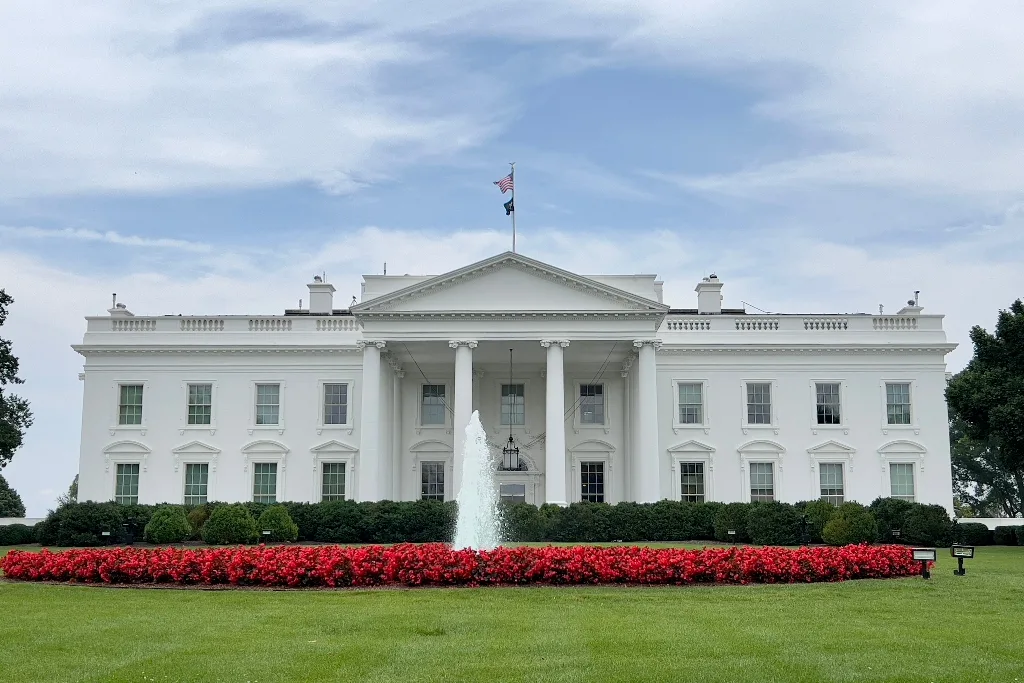
The White House is the official residence and workplace of the president of the US. Source: AFP
While age is associated with wisdom, science has found that our brains start shrinking as early as our 30s and at an accelerating rate by age 60. Our bodies, especially our skeletal muscles, tend to wither and weaken.
Leading a country like the US, however, with a population of over 335 million as of September 2023 with a seemingly infinite list of demands, requires superhuman strength.
The US president is also the de facto leader of today’s world, with many challenges to confront, from climate change to growing inequality.
In this, it appears someone more youthful is more apt for the role. But how true is this?
Did the US become the world’s #1 superpower in recent decades because they’ve had the youngest presidents of the US at the helm?
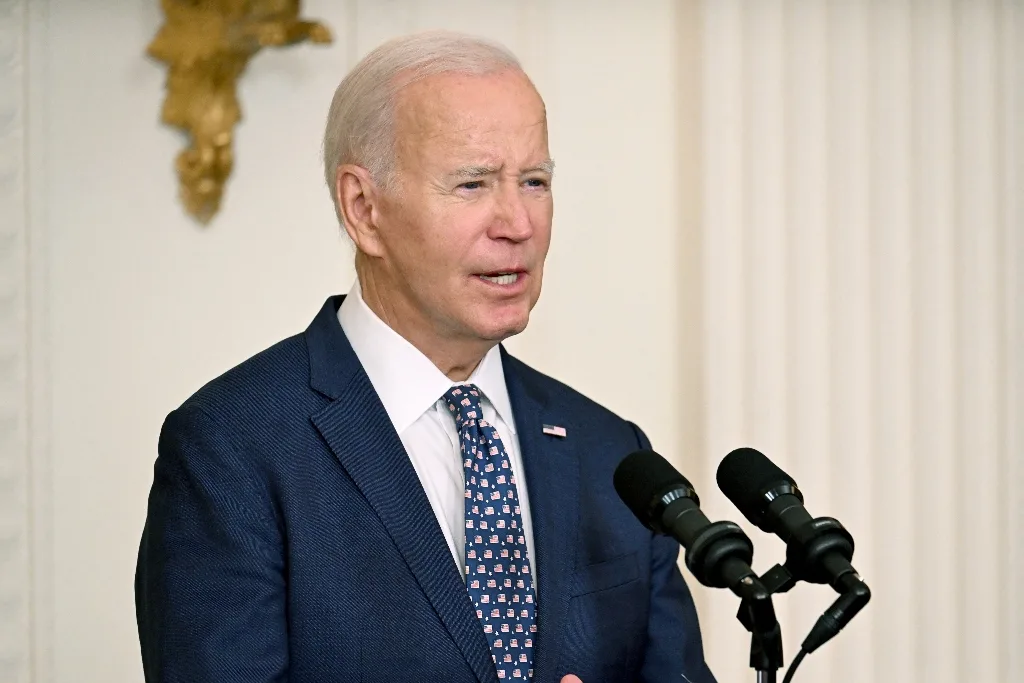
Joe Biden was elected at 78 years old, making him the oldest president of the US. Source: AFP
A history of US presidents
The US has witnessed 46 presidents since 1789, when George Washington was elected.
The average age of inauguration of incoming US presidents is usually around 55 years.
That’s just 10 years away from what the World Health Organisation defines as “elderly.”
And that’s 20 years more than the minimum age required by Article II, Section 1, Clause 5 of the US Constitution for someone to be eligible to become a president of the US
How old do you have to be to be president of the US?
To become president of the US, you must first meet the constitutional age requirement, which is outlined in Article II, Section 1, Clause 5 of the US Constitution.
According to this, a presidential candidate must be at least 35 years old at the time of their inauguration.
This age criterion was established by the Founding Fathers to ensure that presidential candidates possess a certain level of maturity, experience, and wisdom before assuming the role.
While the Constitution specifies the minimum age, there is no maximum age limit, allowing individuals of any age to seek and hold the presidency as long as they meet the other eligibility criteria, such as being a citizen of the country and having lived in the country for at least 14 years.
While age is a requirement, it’s not all it takes to become a president.
Ultimately, whether you’re 35 years old or 80 years old, it’s how you make the most of your physical and mental strength to lead the nation that counts.
Among the rich world, it appears that the ideal age to lead a nation is around 54 years old — which is the average age of heads of government in the 36 OECD countries today.
The youngest presidents of the US are years and even decades younger than this.
What did they have that was so special to make up not only for the lack of (decades of) experience but gave them the power and confidence to lead the world’s most powerful nation?
Was it their education, people skills, vision or all three? We explore these questions and more below:
Here’s where the youngest presidents of the US studied
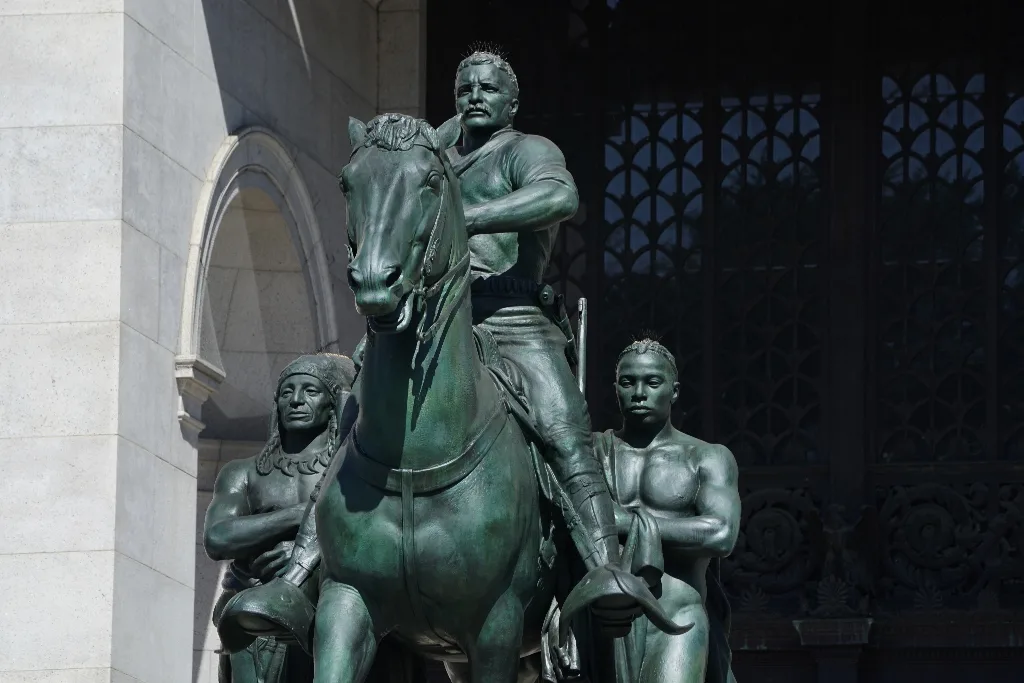
The Equestrian Statue of Theodore Roosevelt was located at the American Museum of Natural History in New York City. Source: AFP
1. Theodore Roosevelt
The youngest president of the US was Theodore Roosevelt. Roosevelt, the 26th president, was 42 years old when he assumed the office of the presidency in 1901. He was William McKinley’s vice president and became president after McKinley’s assassination, according to The White House.
He was reelected in 1904 and continued to lead the nation until 1909. His dynamic leadership style made him an influential figure in American history, and he remains one of the most memorable and impactful presidents the country has ever seen.
Born in 1858 into a wealthy New York City family, Roosevelt was homeschooled for much of his early life.
In 1876, he entered Harvard University, where he studied biology and various subjects, including German, natural history, zoology, forensics, and composition.
His time at Harvard allowed him to deepen his interest in natural sciences, particularly ornithology and further cultivated his passion for exploration and adventure. Here, he became involved in campus politics and developed his leadership skills.
Roosevelt then enrolled in Columbia Law School but dropped out after one year to begin a career in public service.
He won the Nobel Peace Prize in 1906 for mediating the Russo-Japanese War, and reached a Gentleman’s Agreement on immigration with Japan.
2. John F. Kennedy
John F. Kennedy, popularly known as JFK, was the second youngest president and the youngest ever to win the office by election.
At 43 years old, John F. Kennedy was elected as the 35th President of the United States. He narrowly won the 1960 election against the Republican Richard Nixon.
Unfortunately, Kennedy’s presidential term was cut short. In 1963, at 46 years old, he passed away due to an assassination.
He is remembered for his vigour and glamour. He is revered for guiding the state through the height of the Cold War without physically confronting the Soviet Union.
Years before his presidency, he attended Choate Rosemary Hall. Surprisingly, Kennedy was not the best student during his time at Choate.
On his application to Harvard, Kennedy noted that his interests lay in economics and history and that he “would like to go to the same college as my father.”
Jack Kennedy, JFK’s father, wrote that “Jack has a very brilliant mind for the things in which he is interested, but is careless and lacks application in those in which he is not interested.
Perhaps Kennedy would not have met Harvard’s stringent admissions criteria today, but there is no doubt that his education at Harvard shaped him for his future.
After graduating from Harvard with honours in 1940, Kennedy attended Stanford University for graduate studies.
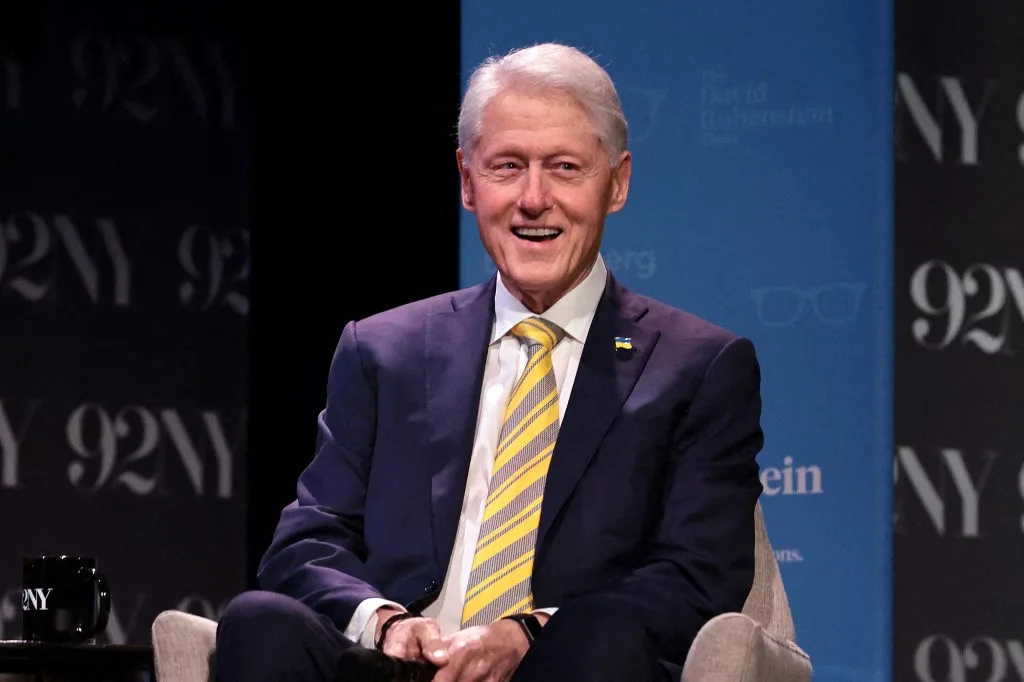
Bill Clinton, one of the youngest presidents of the US, speaks onstage during In Conversation with David Rubenstein at The 92nd Street Y, New York on May 04, 2023 in New York City. Source: AFP
3. Bill Clinton
Bill Clinton’s presidency marked a historic moment in American politics as he became one of the youngest presidents of the US when he assumed office in 1993 at the age of 46.
Clinton’s ability to connect with younger voters through his charisma and relatability allowed him to bridge generational gaps, making him a dynamic and influential figure during his time in office.
Clinton became president at age 46. He was the 42nd US president and the first Democratic president since Franklin D. Roosevelt to win a second term.
Born in Hope, Arkansas, in 1946, Clinton attended Georgetown University in Washington, D.C., where he pursued a degree in International Affairs.
He managed to cover his expenses through scholarships and by working part-time jobs. This experience exposed him to diverse ideas and cultures, fostering his interest in global politics and diplomacy.
However, Clinton delved deeper into his passion for public service during his time at Oxford University as a Rhodes Scholar. Studying philosophy, politics, and economics at Oxford allowed him to engage in intellectual debates and refine his political ideologies.
Returning to the US, Clinton continued his education at Yale Law School, where he honed his legal skills and developed a deep understanding of constitutional law.
His education at Yale not only equipped him with the knowledge to navigate the legal intricacies of American governance but also exposed him to the country’s social and political challenges.
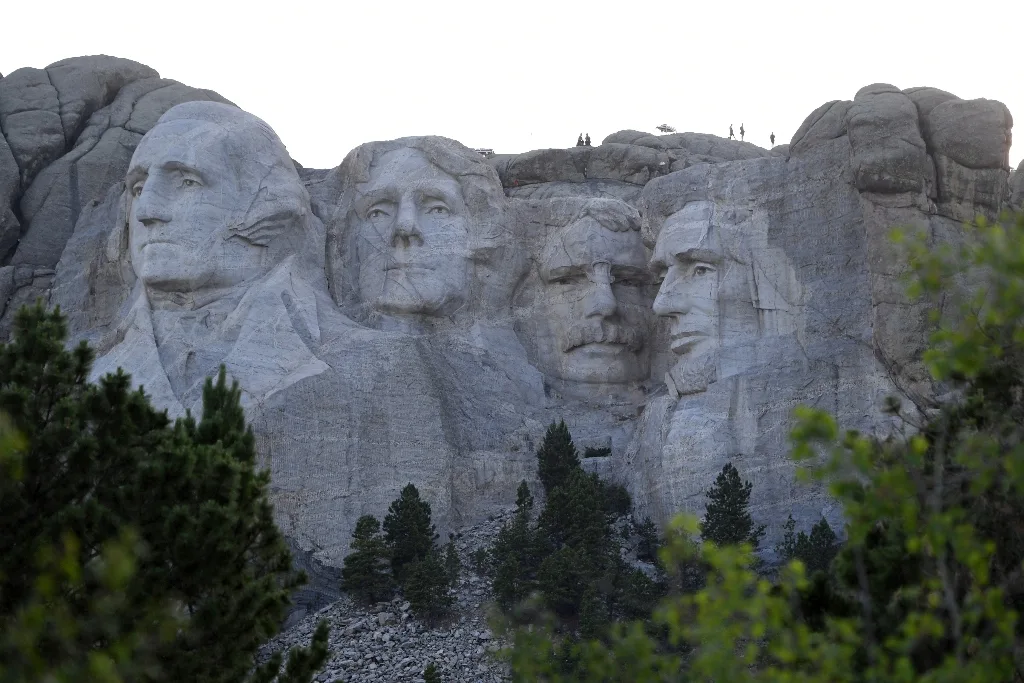
The Mount Rushmore National Memorial sculpture depicts the faces of US presidents George Washington, Thomas Jefferson, Theodore Roosevelt, and Abraham Lincoln. Source: AFP
4. Ulysses S. Grant
Ulysses S. Grant was elected president in 1868, and when he took office on March 4, 1869, he was the youngest man to become president at that time. Grant became the 18th US president at age 46.
He served as the Secretary of War during the American Civil War and led the Union army to victory over the Confederates.
Grant led the country through a reconciliation process during his tenure and spearheaded the fight against Confederate nationalism, slavery, and racism.
Born in 1822 in Point Pleasant, Ohio, Grant was appointed to the US Military Academy at West Point in 1839.
His education at the academy exposed him to a rigorous curriculum in mathematics, engineering, and military strategy, and it instilled in him a strong sense of discipline and duty.
West Point laid the foundation for his future military career and leadership style.
His military training honed his strategic thinking and decision-making skills, which would prove invaluable during the Civil War.
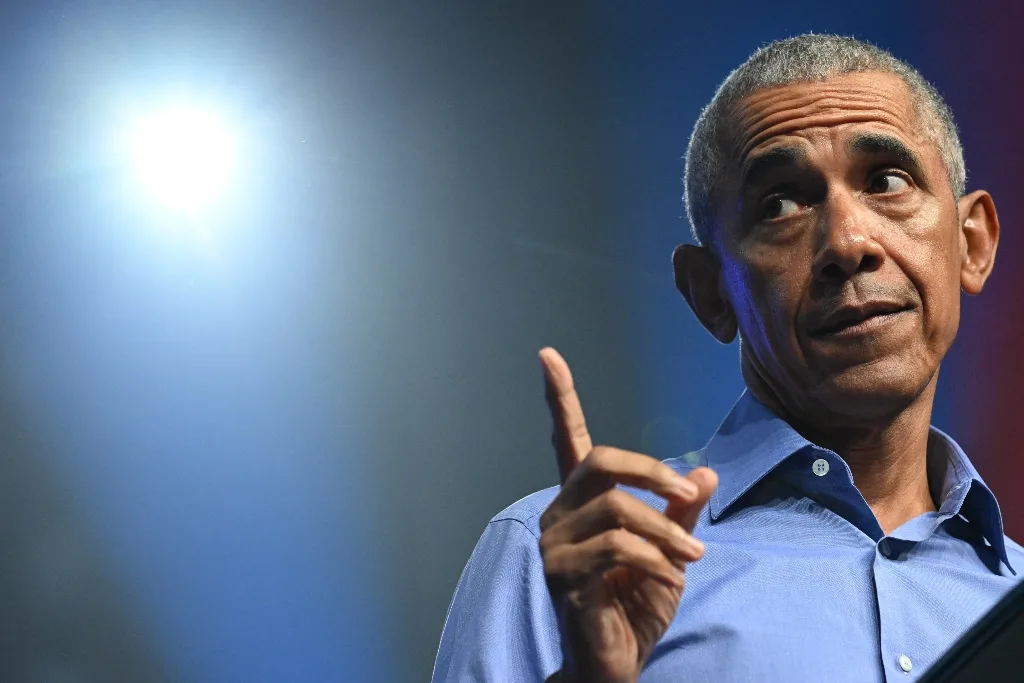
Barack Obama was the first African-American president to be elected in the US. Source: AFP
5. Barack Obama
Barack Obama made history by being the first African American to win the presidency in 2008.
But did you know, that at 47 years old, he is also one of the youngest presidents of the US?
His journey to the presidency wasn’t smooth sailing, but his education over the years prepared him with a deep understanding of constitutional principles to prepare him for his successful two-term tenure in office.
Born in Honolulu, Hawaii, in 1961, he attended Punahou School, a prestigious private preparatory school in Hawaii, where he excelled academically and in extracurricular activities.
After high school, Obama attended Occidental College in Los Angeles, where he continued developing his curiosity about politics. He then transferred to Columbia University in New York City, where he graduated with a degree in political science.
After completing his undergraduate studies, Obama moved to Chicago and worked as a community organiser before attending Harvard Law School.
At Harvard, he demonstrated exceptional leadership and was elected as the first African-American president of the Harvard Law Review. This achievement catapulted him into the national spotlight and laid the foundation for his future political career.


